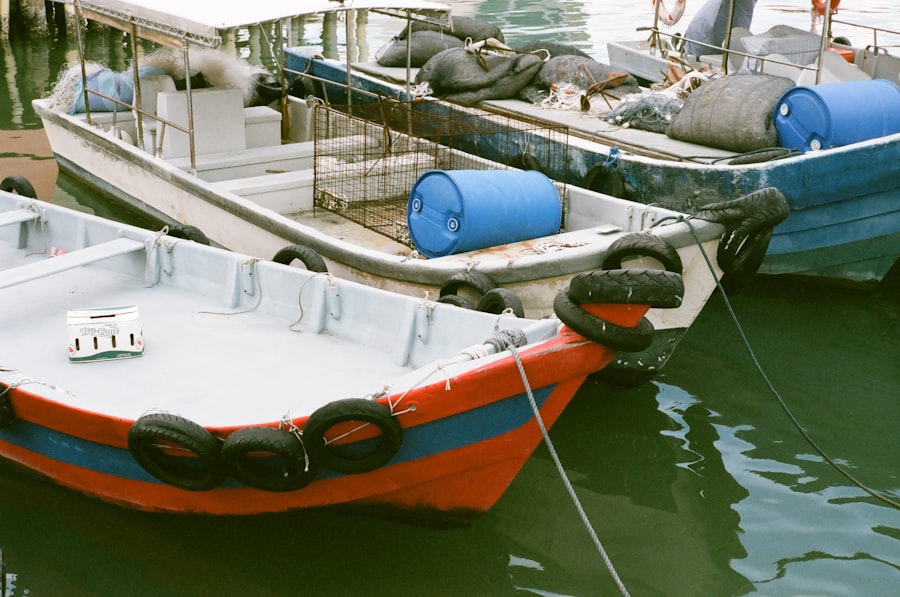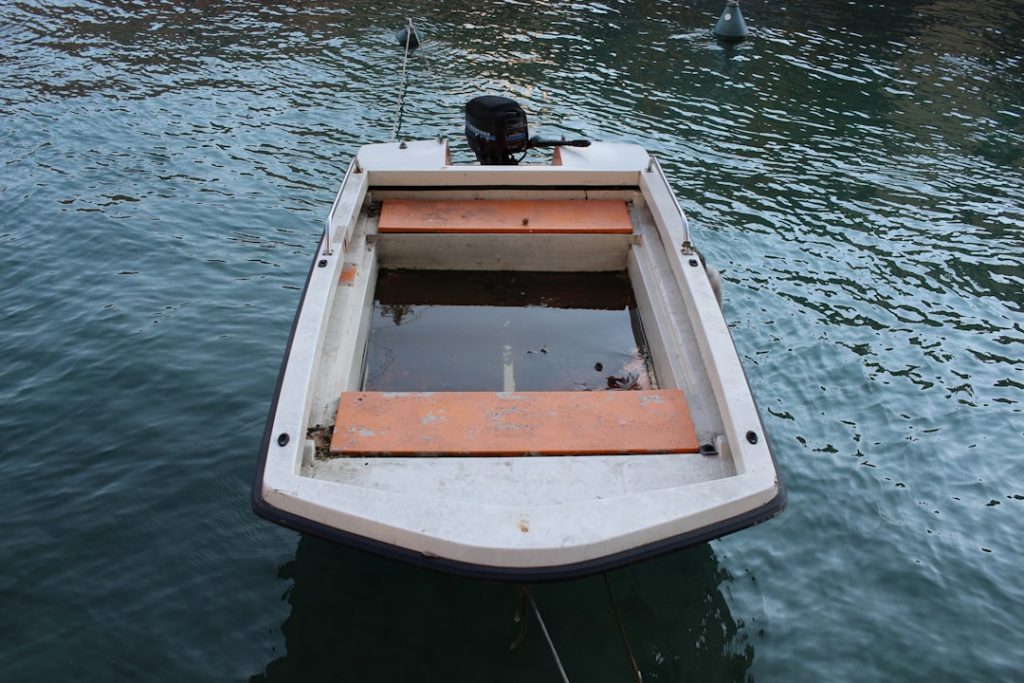High-quality motor boat motors are the heart of any marine vessel, providing the necessary power and reliability for a safe and enjoyable boating experience. These motors come in various types, including outboard, inboard, and sterndrive engines, each designed to meet specific needs and preferences of boaters. Outboard motors, for instance, are popular for their versatility and ease of maintenance, while inboard motors are often favored for larger vessels due to their powerful performance and efficient fuel consumption.
Understanding the distinctions between these types is crucial for boat owners looking to make informed decisions about their propulsion systems. The quality of a motor boat motor is determined by several factors, including its construction materials, engineering design, and technological advancements. High-quality motors are typically made from durable materials that can withstand harsh marine environments, such as corrosion-resistant alloys and high-grade plastics.
Additionally, advancements in technology have led to the development of more efficient engines that not only provide better performance but also reduce emissions and fuel consumption. For example, modern four-stroke outboard motors are designed to be quieter and more fuel-efficient than their two-stroke counterparts, making them a popular choice among environmentally conscious boaters.
Key Takeaways
- High-quality motor boat motors are essential for performance, reliability, and safety on the water.
- Key factors when choosing a motor include power, fuel efficiency, durability, and compatibility with your boat.
- Leading brands offer a range of models tailored to different boating needs and budgets.
- Regular maintenance is crucial to extend motor life and prevent costly repairs.
- Proper installation, testing, and timely upgrades ensure optimal motor performance and longevity.
Factors to Consider When Choosing a Motor Boat Motor
When selecting a motor boat motor, several critical factors must be taken into account to ensure optimal performance and compatibility with the vessel. One of the primary considerations is the size and weight of the motor in relation to the boat’s specifications. Each boat has a recommended horsepower range that should be adhered to for safety and efficiency.
Overpowering a boat can lead to instability and handling issues, while underpowering can result in inadequate performance, especially in challenging conditions. Another essential factor is the type of fuel the motor uses. Gasoline engines are common due to their availability and ease of use, but diesel engines are often preferred for larger vessels due to their fuel efficiency and longevity.
Additionally, boaters should consider the motor’s maintenance requirements and availability of parts. A motor that is easy to service and has readily available replacement parts can save time and money in the long run. Furthermore, potential buyers should evaluate the warranty and customer support offered by manufacturers, as these can significantly impact the ownership experience.
Top Brands and Models of Motor Boat Motors

The market for motor boat motors is populated with numerous brands, each offering a range of models tailored to different boating needs. Yamaha is one of the leading manufacturers known for its reliable outboard motors that combine performance with innovative technology. The Yamaha F300 is a prime example, featuring a lightweight design, advanced fuel injection system, and exceptional torque delivery, making it suitable for both recreational and commercial applications.
Another prominent brand is Mercury Marine, which has established a reputation for producing high-performance outboard motors. The Mercury Verado series is particularly noteworthy for its supercharged four-stroke engines that deliver impressive power while maintaining fuel efficiency. These motors are equipped with advanced digital controls that enhance maneuverability and responsiveness, making them ideal for both leisure cruising and competitive racing.
Honda Marine also deserves mention for its commitment to producing environmentally friendly motors. The Honda BF series features four-stroke engines that are not only quiet but also meet stringent emissions standards. The BF250 model stands out with its lightweight construction and innovative technology that optimizes fuel efficiency without compromising on power.
The Importance of Regular Maintenance for Motor Boat Motors
| Maintenance Task | Frequency | Impact on Motor Performance | Common Issues Prevented | Estimated Time Required |
|---|---|---|---|---|
| Oil Change | Every 50 hours or annually | Ensures smooth engine operation and longevity | Engine wear, overheating, and poor fuel efficiency | 30 minutes |
| Fuel System Inspection | Every 100 hours or annually | Prevents fuel contamination and blockages | Clogged fuel lines, engine stalling | 45 minutes |
| Propeller Check | Monthly or after impact | Maintains optimal thrust and fuel efficiency | Vibration, reduced speed, and damage to drivetrain | 15 minutes |
| Cooling System Flush | Annually | Prevents overheating and corrosion | Engine overheating, corrosion buildup | 1 hour |
| Battery Maintenance | Monthly | Ensures reliable engine starting and electrical function | Battery failure, electrical issues | 20 minutes |
| Spark Plug Replacement | Every 100 hours or annually | Improves ignition and fuel efficiency | Misfires, poor engine performance | 30 minutes |
Regular maintenance is crucial for ensuring the longevity and reliability of motor boat motors. Just like any mechanical system, these engines require routine checks and servicing to prevent potential issues from escalating into costly repairs. Key maintenance tasks include changing the oil and oil filter, inspecting fuel lines for leaks or wear, and checking the cooling system to prevent overheating.
Neglecting these tasks can lead to engine failure or reduced performance, which can be particularly dangerous while out on the water. In addition to routine maintenance, seasonal preparations are essential for boat motors that may sit idle during off-peak months. This includes winterizing the engine by draining water from the cooling system to prevent freezing damage and adding fuel stabilizers to prevent fuel degradation.
Proper storage practices can significantly extend the life of a motor boat motor, ensuring it remains in optimal condition when it’s time to hit the water again.
Where to Find High-Quality Motor Boat Motors for Sale
Finding high-quality motor boat motors for sale requires thorough research and consideration of various sources. Authorized dealerships often provide a reliable option as they typically offer new models with warranties and manufacturer support. These dealerships can also provide valuable insights into which motors are best suited for specific types of boats or intended uses.
Online marketplaces have become increasingly popular for purchasing motor boat motors due to their convenience and wide selection. Websites like eBay, Craigslist, or specialized marine equipment sites allow buyers to compare prices and read reviews from other customers. However, caution is advised when purchasing from private sellers or less-known platforms; it’s essential to verify the condition of the motor and ensure it has been properly maintained before making a purchase.
Additionally, attending boat shows or marine expos can be an excellent way to explore various brands and models in person. These events often feature demonstrations and opportunities to speak directly with manufacturers or dealers about their products. Networking with other boaters can also yield recommendations on where to find high-quality motors at competitive prices.
Tips for Installing and Testing Motor Boat Motors

Installing a motor boat motor requires careful attention to detail and adherence to manufacturer guidelines to ensure safety and optimal performance. Before beginning the installation process, it’s essential to gather all necessary tools and equipment, including mounting hardware, wiring kits, and safety gear. Following the manufacturer’s instructions step-by-step will help avoid common pitfalls that could lead to improper installation or damage.
Once installed, testing the motor is a critical step before taking the boat out on the water. This involves checking all connections, ensuring that fuel lines are secure, and verifying that electrical systems are functioning correctly. A thorough pre-launch inspection should include running the engine on land using a flush kit or test tank to monitor its performance without being in water.
Observing how the engine starts, idles, and accelerates will provide valuable insights into its operational status.
Upgrading Your Motor Boat Motor: What You Need to Know
Upgrading a motor boat motor can significantly enhance a vessel’s performance, efficiency, and overall enjoyment on the water. However, it’s essential to approach this process with careful consideration of compatibility with existing systems on the boat. Before making any decisions, boat owners should assess their current motor’s performance issues or limitations and determine what improvements they seek from an upgrade.
When selecting a new motor for an upgrade, it’s crucial to consider factors such as weight distribution, horsepower requirements, and mounting configurations. Additionally, understanding local regulations regarding engine size and emissions standards is vital to ensure compliance with legal requirements. Consulting with marine professionals or experienced boaters can provide valuable insights into which upgrades will yield the best results based on individual boating needs.
The Future of High-Quality Motor Boat Motors
The future of high-quality motor boat motors is poised for significant advancements driven by technological innovation and environmental considerations. As concerns about climate change intensify, manufacturers are increasingly focusing on developing electric propulsion systems as viable alternatives to traditional gasoline or diesel engines. Electric motors offer numerous benefits, including reduced emissions, quieter operation, and lower maintenance costs due to fewer moving parts.
Hybrid systems that combine traditional combustion engines with electric propulsion are also gaining traction in the boating industry. These systems allow for greater flexibility in power management while reducing overall fuel consumption during operation. As battery technology continues to improve, we can expect electric motors to become more powerful and capable of supporting larger vessels without compromising performance.
Moreover, advancements in smart technology are likely to play a significant role in the future of motor boat motors. Features such as integrated GPS systems for navigation assistance, real-time monitoring of engine performance data via mobile applications, and automated maintenance alerts will enhance user experience while promoting safer boating practices. As these technologies evolve, they will undoubtedly shape the next generation of high-quality motor boat motors, making them more efficient, user-friendly, and environmentally sustainable than ever before.


